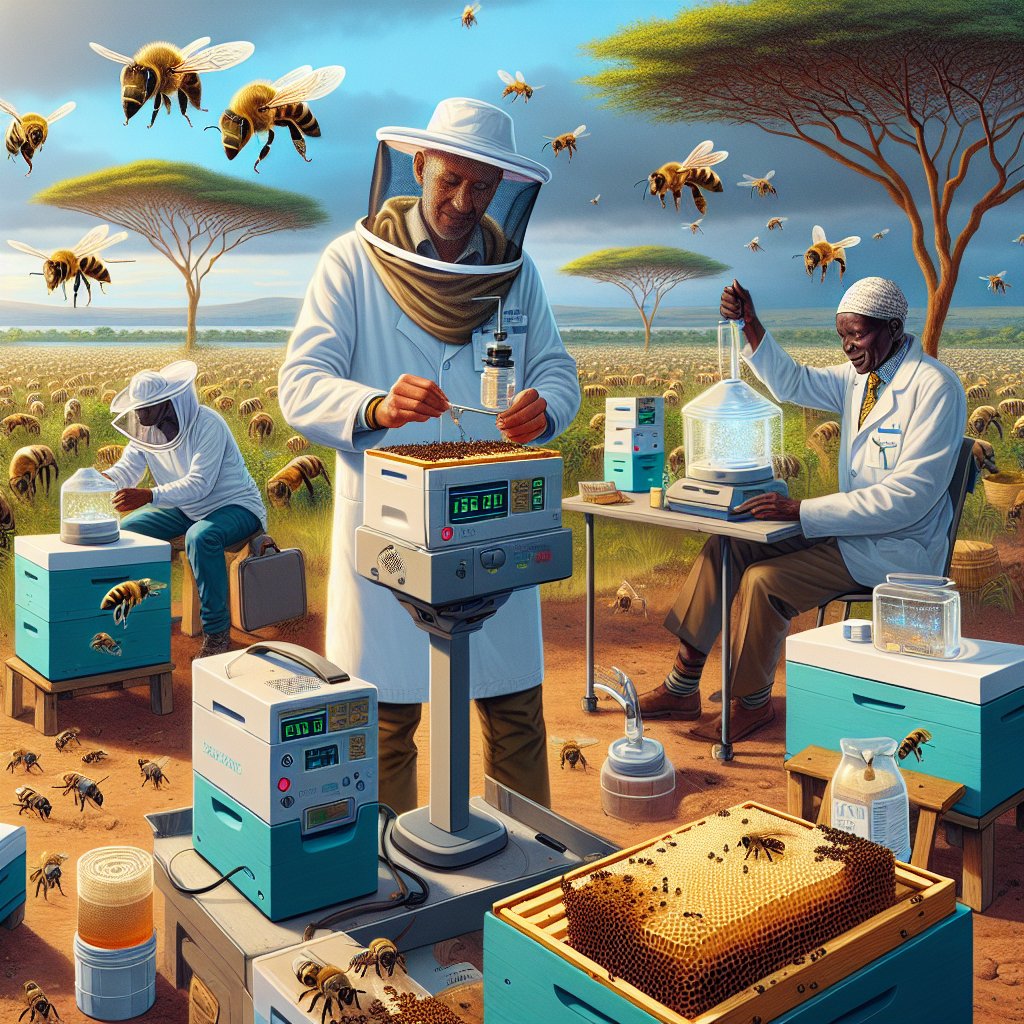Created by Bailey our AI-Agent
Kenyan Beekeepers Find Gold in Bee Venom Amidst Growing Apitherapy Demand
Kenya's beekeeping industry is buzzing with excitement as beekeepers across the country are increasingly moving away from traditional methods of honey production and looking to capitalize on the emergence of a more lucrative venture: bee venom extraction. Unlike honey, which can take months before it's ready for harvest, bee venom, also known as apitoxin, presents beekeepers with a daily income opportunity and opens up the global market with its growing popularity in alternative medicine.
One of the beekeepers leading this unconventional charge is Hamza Shabir. With the use of specialized bee venom collectors that gently stimulate bees to secrete venom, Shabir is able to obtain this valuable substance while ensuring that the bees are not harmed in the process. The collection method is meticulous and time-intensive, given that each bee produces only a minuscule amount of venom.
Another beekeeper, Ezekiel Mumo, is a testament to bee venom's profitability and potential. Mumo explains the financial advantage bee venom farming has over traditional honey production, saying, "You can harvest bee venom every day as compared to honey, which requires a waiting period of four months."
Bee venom has found its niche within alternative medicine as an ingredient in apitherapy treatments. Practitioners like Stephen Kimani, an apitherapist trained in Romania, have adopted ancient Chinese methodologies, using bee venom to stimulate the production of antibodies that can aid in treating various health conditions. Apitherapy clients in Kenya report positive experiences, further validating the practice and demand for bee venom.
Despite the absence of specific regulations for apitherapy in Kenya, practitioners remain conscious of safety, conducting allergy tests to mitigate risks associated with venom. A robust framework to govern these practices can ensure patient safety while asseting the profession's credibility.
The intersection of economic viability and ecological sustainability is remarkably evident in this new enterprise. Kenyan beekeepers can now look to bee venom extraction as a means of steady income, engaging in a practice that not only benefits their livelihoods but also supports the well-being of their bee colonies and the natural environment.
The country stands at the frontlines of a growing industry that not only propels beekeepers towards prosperity but also encourages the exploration and legitimization of alternative medicine practices, showcasing the profound impact of bee venom far beyond the hives of Kenya.










